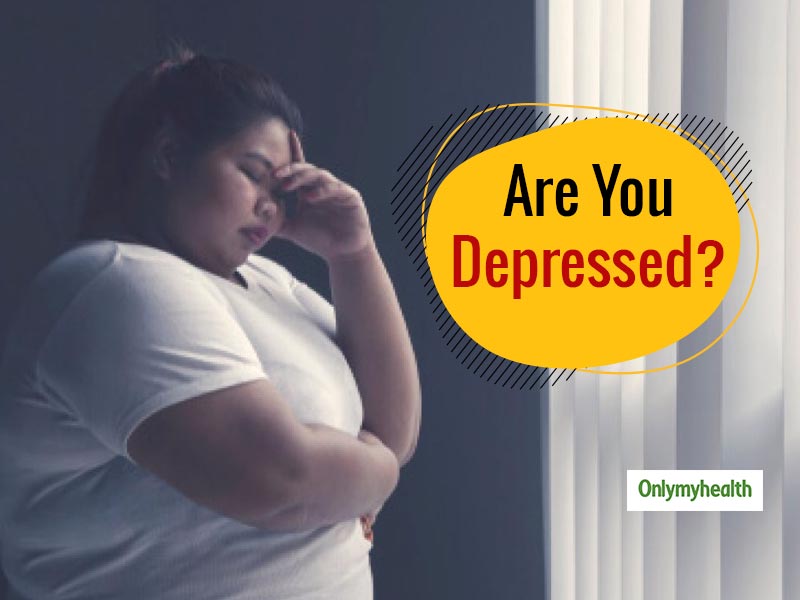
Obesity is not merely a physical condition; it has far-reaching implications that extend into the realm of mental health. The intricate interplay between weight gain and psychological well-being has been the subject of extensive research, shedding light on the multifaceted nature of this relationship.
Table of Content:-
CHECK YOUR
MENTAL HEALTH

Talking along the lines, the editorial team of Onlymyhealth got in touch with Dr Nikhil Nayar, Psychiatry - Sharda Hospital to shed some light if there is a link between obesity and mental health issues. Here is what he shared with us.
At the forefront of this connection are various psychological conditions, such as anxiety, depression, and poor body image, which often coexist with obesity. Individuals grappling with weight issues frequently experience heightened levels of stress and emotional distress, stemming from societal pressures, discrimination, and personal expectations. These factors can significantly impact mental health, exacerbating existing conditions or precipitating new ones.
Biological Mechanisms Underlying the Link
Biological mechanisms further underscore the link between obesity and mental health. Hormonal imbalances associated with excess weight can disrupt mood regulation, contributing to mood disorders such as depression and anxiety. Additionally, chronic inflammation, a hallmark of obesity, can impair neurotransmitter function in the brain, further exacerbating psychiatric symptoms.

Cyclical Nature of Obesity and Mental Health
A cyclical association often characterises the relationship between obesity and mental health. Stress or emotional turmoil may lead individuals to seek comfort in food, triggering weight gain. Conversely, the physical and emotional toll of obesity can worsen mental health outcomes, creating a self-perpetuating cycle that is challenging to break without appropriate intervention.
Also Read: Defending Against Malaria: Doctor Decodes Symptoms and Prevention Tips
Psychological Impact Beyond Mood Disorders
The psychological impact of obesity extends beyond mood disorders to encompass various dimensions of mental well-being. Low self-esteem, feelings of worthlessness, and social isolation are common experiences among individuals struggling with weight issues. These psychological burdens can significantly diminish quality of life and impede efforts to manage weight effectively.

Stigma and Discrimination
Moreover, obesity-related stigma and discrimination further compound the psychological toll of the condition. Negative stereotypes and biassed attitudes towards individuals with obesity can lead to profound feelings of shame, guilt, and self-blame. Such experiences not only exacerbate existing mental health issues but also act as barriers to seeking support and treatment.
Approaches to Addressing Obesity and Mental Health
Addressing the complex interplay between obesity and mental health requires a comprehensive approach that integrates medical, psychological, and social interventions. Mental health screening and support should be integral components of obesity management programs, ensuring that individuals receive holistic care that addresses both physical and emotional well-being.
Also Read: Expert Talk: Quitting Smoking at Any Age Cuts Down Cancer Risk
Psychological interventions, such as cognitive-behavioural therapy (CBT) and mindfulness-based techniques, can help individuals develop healthier coping strategies and improve their relationship with food. Additionally, social support networks and peer-led initiatives can provide valuable encouragement and understanding, reducing feelings of isolation and fostering a sense of belonging.
Promoting Body Positivity and Challenging Weight-Based Stereotypes
Promoting body positivity and challenging weight-based stereotypes are essential steps towards creating a more inclusive and supportive environment for individuals of all body sizes. By fostering acceptance and empathy, we can reduce the stigma surrounding obesity and create opportunities for individuals to seek help without fear of judgement or discrimination.
A Final Word
The link between obesity and mental health is undeniable, characterised by a complex interplay of biological, psychological, and social factors. Recognizing and addressing the psychological dimensions of obesity is crucial for promoting holistic well-being and supporting individuals in their journey towards health and happiness. By fostering understanding, compassion, and access to comprehensive care, we can empower individuals to break free from the cycle of obesity and reclaim their mental and physical health.
Also watch this video
How we keep this article up to date:
We work with experts and keep a close eye on the latest in health and wellness. Whenever there is a new research or helpful information, we update our articles with accurate and useful advice.
Current Version